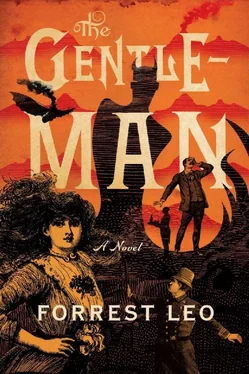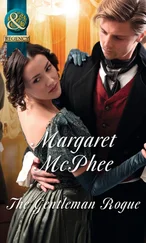Finally, thanks to Abigail — my partner in all things.
*I have included this excerpt as epigraph because I believe it gives a sense of Mr Savage’s poetic temperament for those unfamiliar with his work. It is taken from his first collection, Pasquinades and Peregrinations . I have not consulted him upon its inclusion. — HL.
*It is for the attentive reader to decide for himself whether Mr Savage is deserving of that epithet. — HL.
*I believe this is meant to be an unfortunate play upon my cousin’s name. It is a literary offence typical of him. — HL.
*My cousin refers naturally to Hyde Park. This (in case the reader has the misfortune to be on the Continent or in the Colonies) is the London park which people of fashion and breeding frequent. — HL.
*I, too, was present. I dine often at Easton Arms. My father being brother to Lord Lancaster, I am Vivien’s first cousin. As Mr Savage is my cousin’s husband, he is thus by law my cousin also. It is for this reason I made bold to include an epigraph without obtaining his express permission. We harbour between us that particular and tenuous affection which marks the sobrinical bond. — HL.
*I beg you to note that this is equivalent to declaring popular art bad art — which would I am afraid quite condemn the poetry of Mr Savage. In addition, it should be mentioned that the collection at Easton Arms has a national reputation for excellence. — HL.
*It appears I am no poet. — HL.
*This, too, is open for debate. Mr Savage at all times displays such deep contempt for society that one wonders at the grudge he nurses. Whence comes it? Is it innate or learned? Can it be cured? Such questions are beyond the scope of your humble editor. — HL.
*These names include Horatio, Britannius Grammaticus, Iucundis Eremita, and Charles Greenley. — HL.
*See epigraph. It is for elucidation of this exchange as well as for other reasons that I elected to include it. — HL.
*Like the unicorn, legends of my cousin’s cheer persist only because they cannot be disproved. — HL.
*The reader has undoubtedly noticed that Mr Savage presents this account in an affected present tense. I strongly petitioned him not to do so, but he was intransigent. A transcription follows of the brief missive he sent me regarding the choice: ‘Hubert — there’s method to my madness and madness to my method: glorious, rather inspired madness. By writing in the present tense I bring immediacy to the events. Which, obviously, is the reason present tense exists. If I did not write thus, the reader would instantly know that the whole thing turned out well, if I sounded merry, or ill, if I sounded melancholy, and the effect would be ruined. Now be a good chap and leave literature to the literary.—S.’—HL.
*It should be noted that despite Mr Savage’s ambiguity the late earl was not his father. Mr Simmons purchased the desk at an estate sale on Mr Savage’s behalf. — HL.
*There is, and I have had to deal with them often. — HL.
*It is as well for Mr Savage that he has had no dealings with the Suicide Committee. Despite the morbid name, the Committee is peopled largely by unnervingly cheerful men of small stature who smile more than is necessary and laugh more than is polite. They disquiet me. — HL.
*If this poem was ever written, I have not seen it. The reader will note that Mr Savage’s trouble stems not from lack of ideas but from lack of follow-through. — HL.
*I do not condone this form of racial epithet. — HL.
*See the third note here. — HL.
*Firstly, this does not seem to me firm ground upon which to base a prejudice. Secondly, I believe that progress of any sort is good progress. Is that not the meaning of the word? To move forward? And is not moving forward good? I believe it must be. To retreat is not gentlemanly. Thirdly, on a scientific note, gas comes from coal. Coal comes from the earth, for which Mr Savage professes a fondness. — HL.
*I believe that I would here do well to venture a few words upon Miss Elizabeth Savage. She is made, in these pages, to seem to be of easy virtue and loose morals. This is not, I believe, actually the case. She is by no means conventional, and at times behaves in ways which, let it be understood, I hope that my daughters, if ever I have any, would not. But she does not do so from wilful deviance. There was a philosopher — whose name I cannot recall but who I much admired in my youth — who declared that he would taste any drink once. Miss Savage seems to live by that maxim. She pursues knowledge in a way not im moral, but a moral. She is an innocent who longs for experience, if the reader will pardon my allusion. — HL.
*For my part, I find little to admire in this frankly anarchic sentiment. This age of morality, as Mr Savage refers to it, has I believe done more to better the world than any age before. This may be a controversial opinion, but I have spent many hours in study and contemplation and I am convinced of the truth of it. — HL.
*It is not. — HL.
*What is amusing is that even as I prepare this manuscript for publication, Mr Savage is preparing to accompany Mr Lancaster on one of his expeditions. Thus the whirligig of time brings in his revenges, which is something that Mr Shakespeare once said. — HL.
*This exchange and others like it — the ones, I mean, regarding certain matters of the body — make me uncomfortable. However, I have generally left them as they were written because I believe they serve the valuable purpose of elucidating the free-thinking nature of the household at Pocklington Place. — HL.
*This sentiment and phrasing Miss Savage borrowed from Lord Tennyson. — HL.
*This is the truth. — HL.
*I, too, have wondered this. — HL.
*It would. — HL.
*While I do not mean to sway the reader, I would like very much to call his attention to my earlier note about whether or not ‘gentleman’ is the correct descriptive for my cousin by marriage. — HL.
*I myself love promptness. I often arrive early, occasionally on time, and never, if it can be avoided, late. It has earned me the nickname ‘Timely Hubert,’ which I like, though there are not many who call me this. — HL.
*Though I am no poet, I cannot refrain from pointing out that this is not necessarily the case. — HL.
*What Mr Savage speaks of is true of any servant. For instance, Mrs Savage brought with her to Pocklington Place a cook, one Mrs Davis, whose services were a wedding gift from Lord and Lady Lancaster. The poor woman is devoted to Vivien, but because of the marriage must also endure Mr Savage. — HL.
*I trust that my views upon such language and sentiments are by now quite clear. — HL.
*Respected is not, I think, the correct word. Of the most recent collection, Daydreams and Digressions, Mr Pendergast wrote, ‘The best one can say of this packet of poems, for such Mr Savage assures us they are, is that it is but seventy pages long.’ For a time it did sell tolerably well, however. — HL.
*That is, Tennyson. — HL.
*I believe this must be true, as I have read as much elsewhere. I do not, however, have any personal experience with it. There was once when I believed I had — but I was mistaken. — HL.
*Though it is scarcely credible, I have examined and cross-examined many people who assure me that the conversation which dominates this chapter did indeed take place. Make of that what you will. For my part, I am still grappling with it. — HL.
*I have often wondered about this, and things similar, such as whether or not one ought to say, ‘You see,’ to a blind man, or ‘If you follow,’ to a man with no legs. It is a complicated question, and one which has not yet been satisfactorily answered. — HL.
Читать дальше












